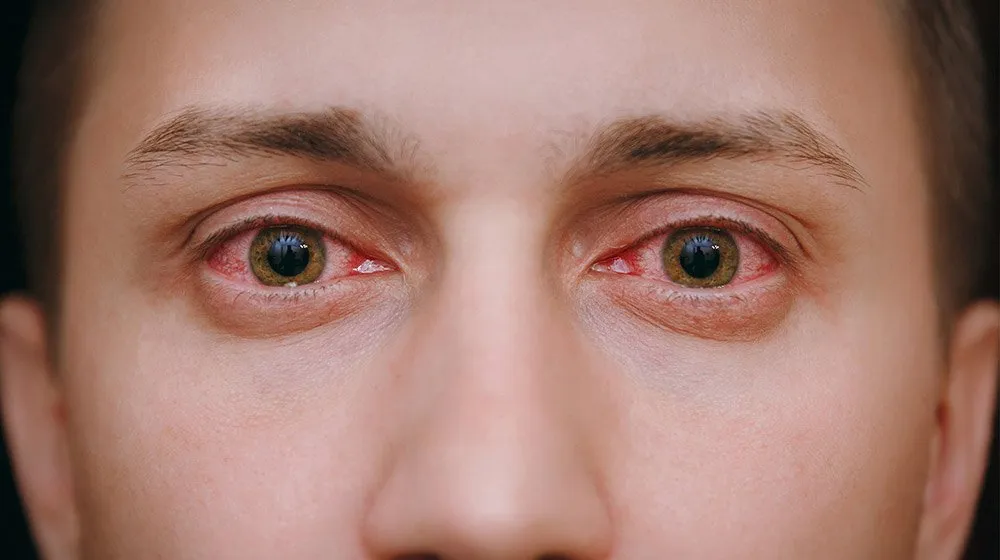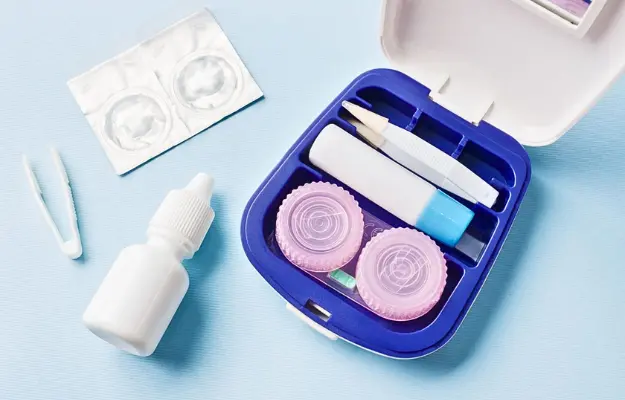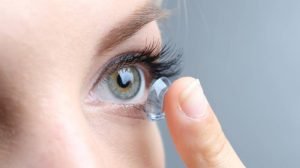Contact lenses offer incredible freedom and clear vision, but improper use can lead to serious eye infections. While millions enjoy the benefits of contact lenses daily, understanding the risks and practicing proper care is crucial to maintaining healthy eyes. Eye infections related to contact lens wear can range from mild irritation to severe conditions that may permanently affect your vision.
This article will break down what contact lens-related eye infections are, their common causes, key symptoms to watch out for, and most importantly, effective strategies to prevent them. Your eyesight is invaluable – learn how to protect it while enjoying the convenience of contact lenses.
What Are Contact Lens-Related Eye Infections?
An eye infection caused by contact lens wear occurs when harmful bacteria, viruses, fungi, or parasites invade any part of the eyeball or the surrounding tissues. These infections can lead to inflammation, damage, and in severe cases, scarring of the cornea, potentially impairing vision. In some instances, severe corneal scarring might even necessitate a corneal transplant to restore clear vision.
>> Read more: Ortho-K: Taking Control of Your Child’s Myopia

Common Causes of Contact Lens-Related Eye Infections
Most eye infections from contact lenses are preventable and often stem from improper use or poor hygiene practices. Here are the primary culprits:
- Wearing Lenses for Too Long or Overnight: Over-wearing lenses, especially sleeping in them (unless they are specific extended-wear lenses prescribed by your eye doctor for this purpose), significantly reduces oxygen flow to the cornea. This creates a hypoxic (low oxygen) environment that weakens the eye’s natural defenses, making it highly susceptible to infection.
- Improper Cleaning and Storage:
- Using Non-Sterile Solutions: Rinsing or storing lenses in tap water, bottled water, saliva, or any liquid other than fresh, sterile contact lens solution introduces dangerous microorganisms (like Acanthamoeba) to the lenses.
- “Topping Off” Solution: Reusing old solution or adding fresh solution on top of old solution in the lens case allows bacteria to multiply and reduces the disinfecting efficacy.
- Infrequent Case Replacement: Lens cases can harbor bacteria and fungi. Not replacing your case every 3 months (or sooner if visibly dirty) allows these pathogens to build up.
- Poor Hand Hygiene: Touching contact lenses with unwashed hands transfers bacteria, viruses, and other contaminants from your fingers directly to your eye. Using soaps with moisturizers, oils, or fragrances can also leave residue on your hands that transfers to the lenses, causing irritation or acting as a breeding ground for microbes.
- Exposure to Water: Wearing contact lenses while swimming, showering, or using hot tubs exposes them to waterborne microorganisms that can adhere to the lens and cause severe infections (e.g., Acanthamoeba keratitis).
- Wearing Expired or Damaged Lenses: Lenses have a limited lifespan. Wearing them beyond their recommended replacement schedule or using torn/damaged lenses compromises their integrity and increases the risk of bacterial accumulation and corneal irritation.
- Sharing Lenses: Sharing contact lenses transfers bacteria and diseases from one person’s eye to another.
>> Read more: How Do Alcoholic Beverages Affect Contact Lens Wearers?
Key Symptoms of an Eye Infection from Contact Lenses
If you experience any of the following symptoms of eye infection while wearing contact lenses, remove them immediately and seek professional medical attention. Do not attempt to “wait it out” or self-treat.
- Blurred or Decreased Vision: Your vision may become hazy or less clear than usual.
- Unusual Redness of the Eye: Persistent or worsening redness of the white part of your eye.
- Eye Pain or Discomfort: Any feeling of pain, soreness, or general discomfort in the eye.
- Excessive Tearing or Discharge: More tears than usual, or the presence of pus-like or milky discharge from the eye.
- Increased Light Sensitivity (Photophobia): Discomfort or pain when exposed to light.
- Gritty Sensation: Feeling like something is constantly in your eye.
- Swelling of the Eyelids or Eye: Visible puffiness around the eye area.
Important Note: Some eye infections from contact lenses can severely impact vision, even leading to blindness. Therefore, if you notice any suspicious symptoms, visit an eye care professional as soon as possible.
Prevention Strategies: Protecting Your Eyes from Infection
Preventing eye infections when wearing contact lenses is primarily about strict adherence to hygiene and proper care practices.
- Wash Your Hands Thoroughly: Always wash your hands with soap and water and dry them completely with a clean, lint-free towel before touching your contact lenses or eyes. Avoid soaps with lotions or perfumes.
- Use Only Approved Solutions:
- Always use fresh, sterile contact lens disinfecting solution as recommended by your eye care professional.
- Never use tap water, bottled water, saliva, or homemade saline solutions.
- Never “top off” old solution with new solution in your lens case.
- Properly Clean and Replace Your Lens Case:
- Rinse your lens case with fresh solution (not water) after each use.
- Allow the case to air dry completely upside down with the caps off.
- Replace your lens case every 3 months, or sooner if it’s damaged or dirty.
- Adhere to Replacement Schedules: Do not wear contact lenses beyond their prescribed replacement schedule (daily, bi-weekly, monthly). “Extended wear” lenses should only be worn overnight if specifically prescribed and monitored by your eye doctor.
- Avoid Water Contact: Remove contact lenses before swimming, showering, using a hot tub, or engaging in any water activities. If lenses accidentally come into contact with water, remove them, disinfect them thoroughly (if reusable), and monitor your eyes closely. If a daily disposable lens comes into contact with water, discard it immediately.
- Never Sleep in Lenses (Unless Prescribed): This is one of the biggest risk factors for severe eye infections. Always remove your lenses before bed, even for a short nap, unless you are using specific extended-wear lenses prescribed for overnight use and are under strict professional guidance.
- Do Not Share Lenses: Contact lenses are medical devices specific to each individual’s eye and prescription. Sharing them can easily transfer bacteria and lead to infections.
- Replace Damaged Lenses: If a lens is torn, scratched, or feels uncomfortable, discard it immediately and use a new one.
- Give Your Eyes a Break: If possible, alternate between wearing contact lenses and eyeglasses to give your eyes a chance to “breathe” and rest. This can also prolong the life of your contact lenses.
- Regular Eye Check-ups: Schedule regular eye examinations with your ophthalmologist or optometrist to ensure your contact lenses are still a good fit for your eyes and that your eyes remain healthy.
>> Read more: All About Contact Lenses: A Complete Guide to Safe and Effective Use
When to See an Eye Doctor
If you suspect an eye infection from contact lens wear, take immediate action:
- Remove Your Contact Lenses: Take them out right away and do not reinsert them. Switch to eyeglasses if you need vision correction.
- Do Not Attempt to Self-Treat: Do not use old eye drops, saline, or any over-the-counter remedies without consulting a doctor.
- Seek Professional Medical Attention Immediately: Contact your eye care professional as soon as possible. Explain your symptoms and that you wear contact lenses. Early diagnosis and treatment are crucial to preventing severe complications and preserving your vision.
Conclusion
Contact lenses can be a fantastic way to correct vision, offering comfort and convenience. However, they demand careful attention and strict adherence to hygiene protocols. Eye infections from contact lenses are serious, but largely preventable. By following proper care guidelines and listening to your eyes, you can safely enjoy the benefits of contact lenses and keep your vision clear and healthy for years to come. Your eye health is in your hands – protect it diligently!








